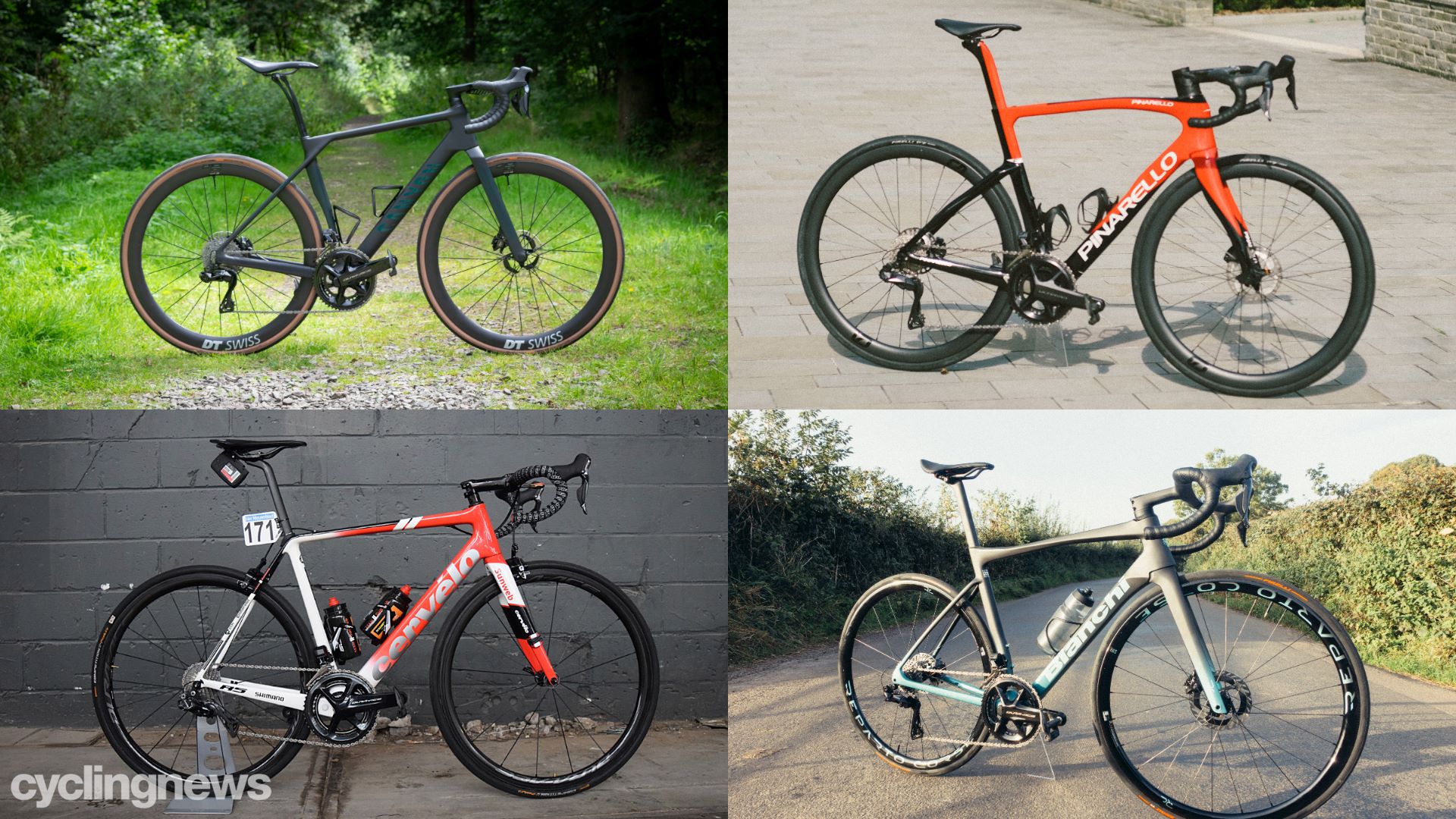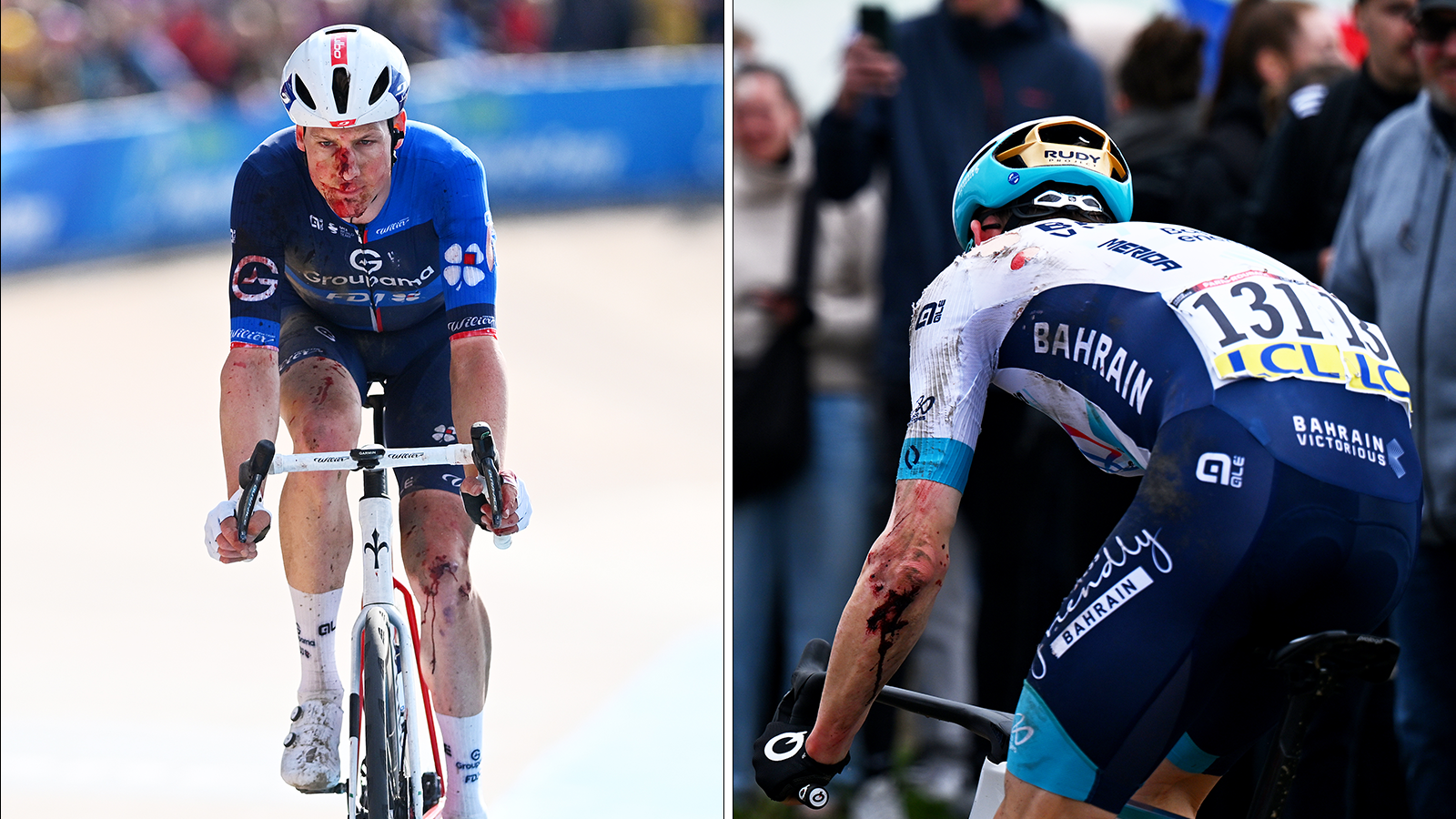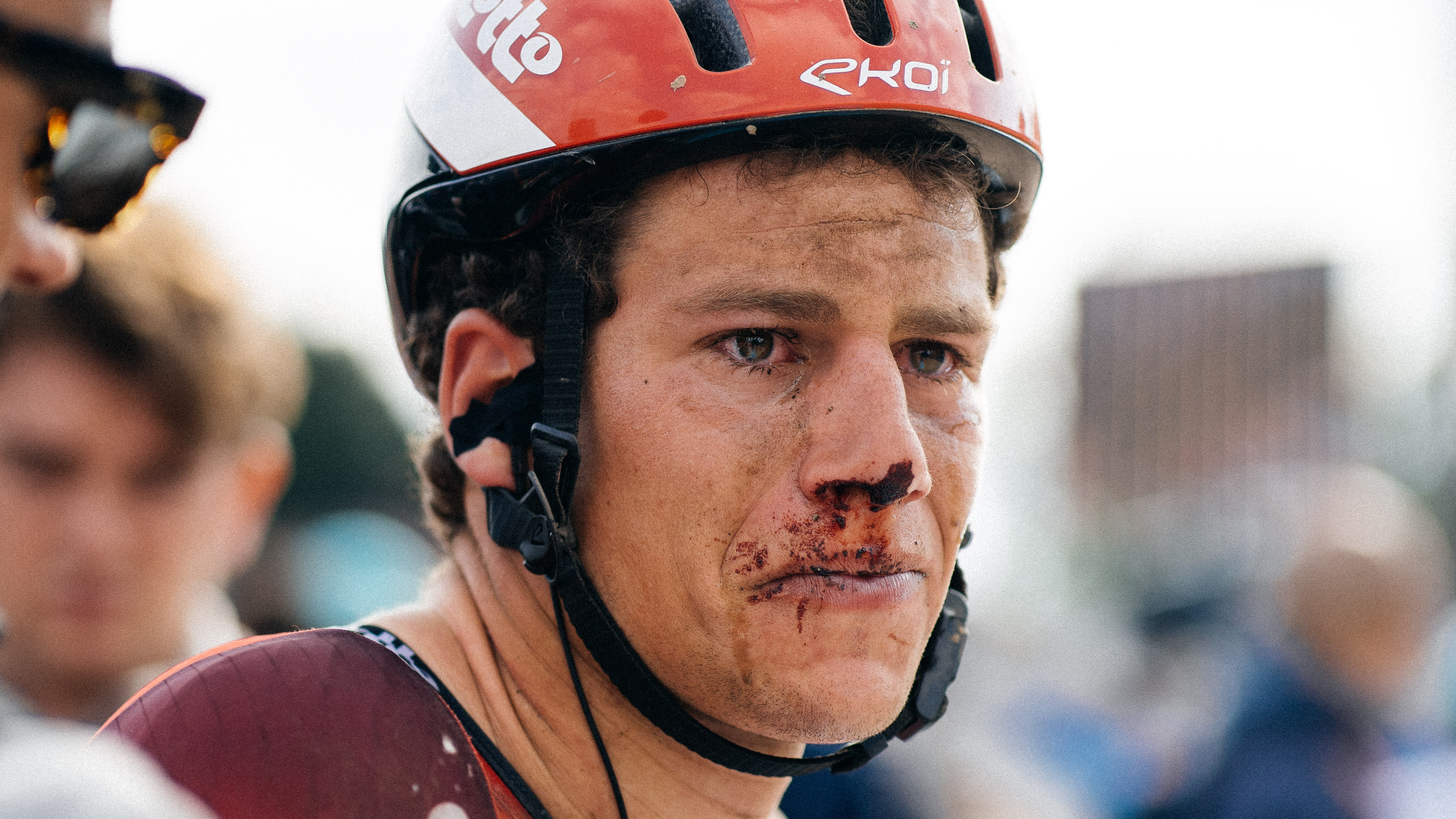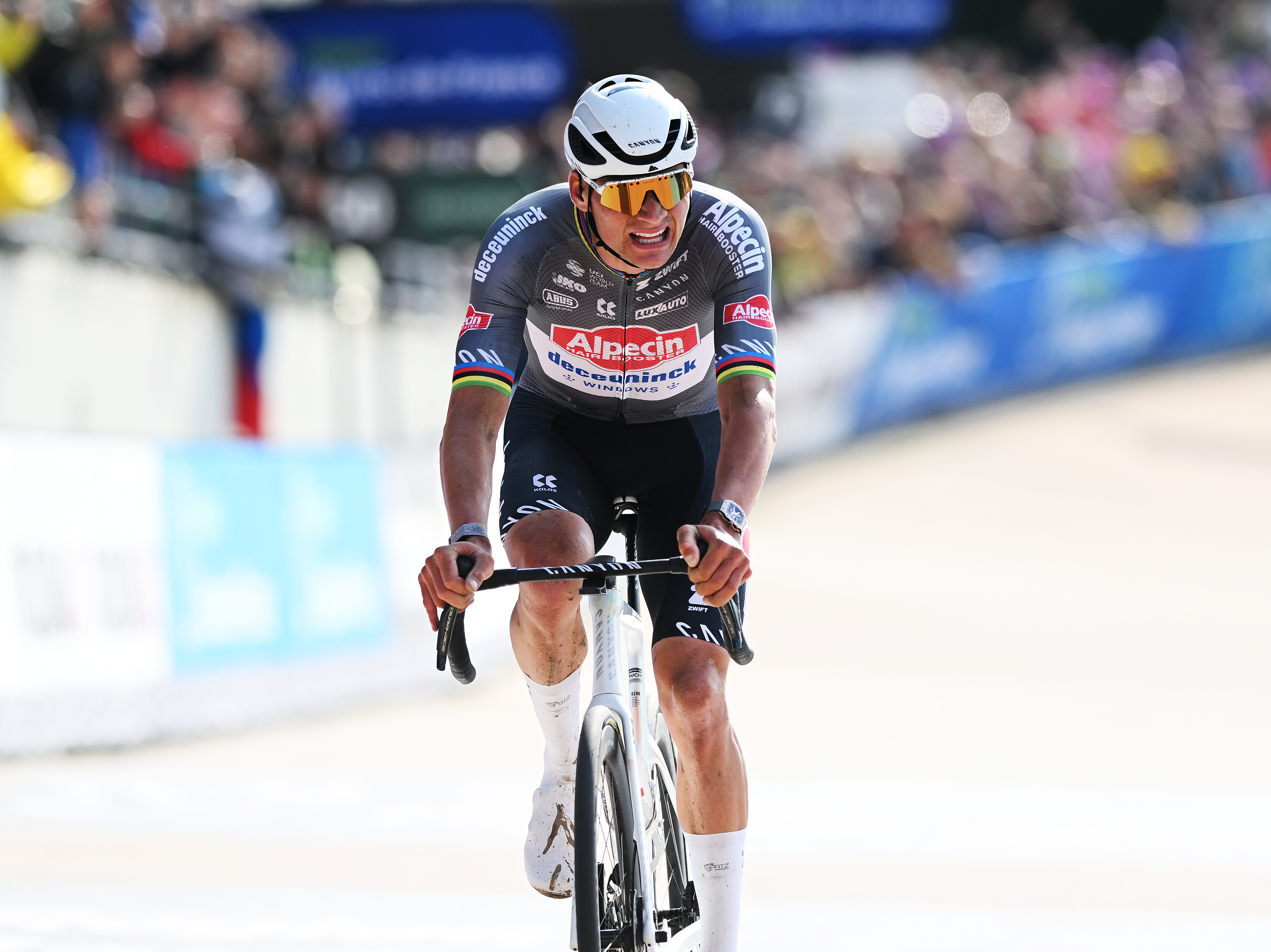Giro d'Italia 2019: The Essential Guide
A detailed look at the route and riders to watch for the 102nd edition of the Corsa Rosa
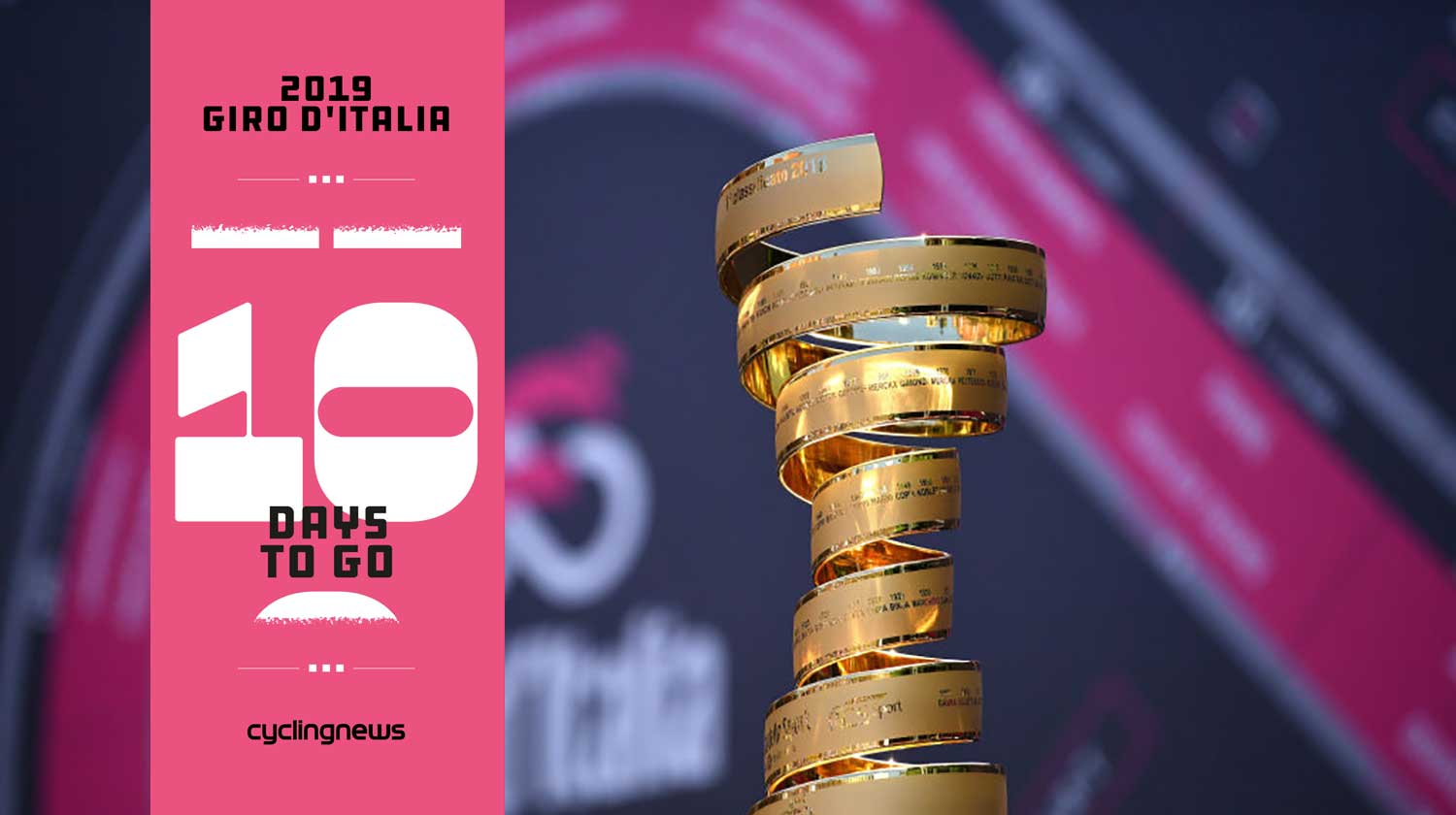
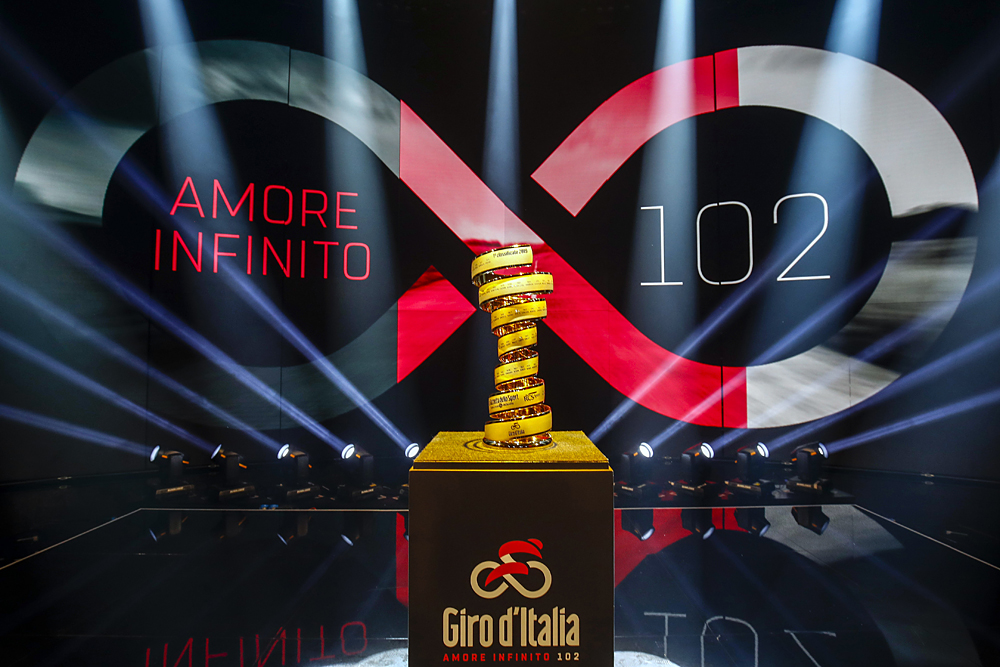
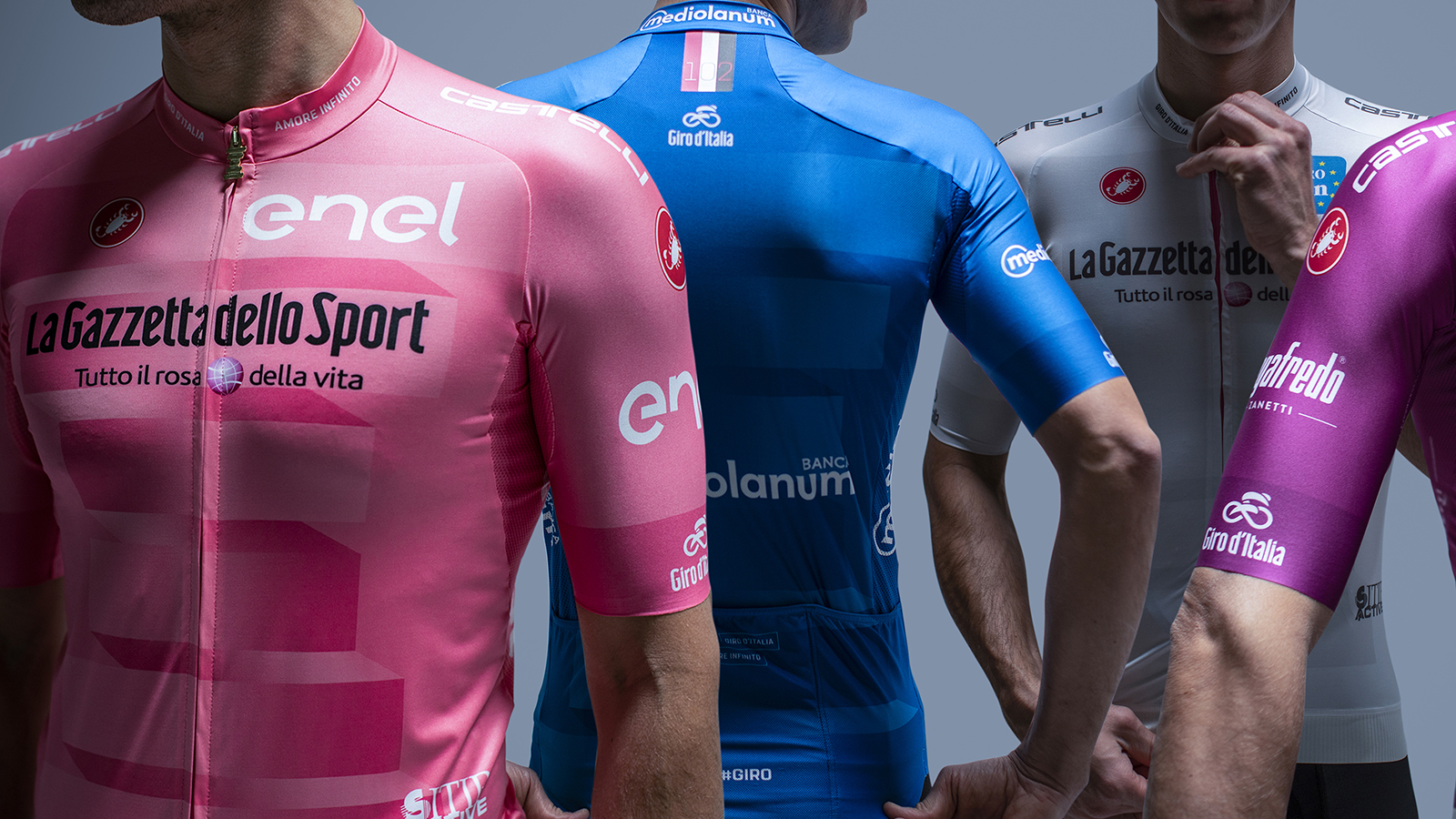
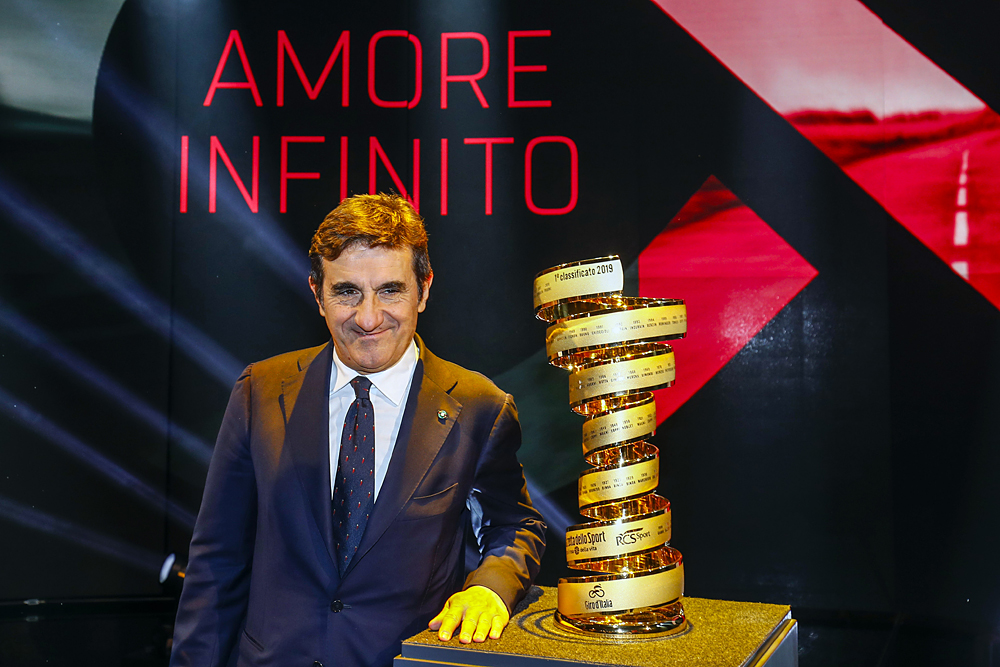
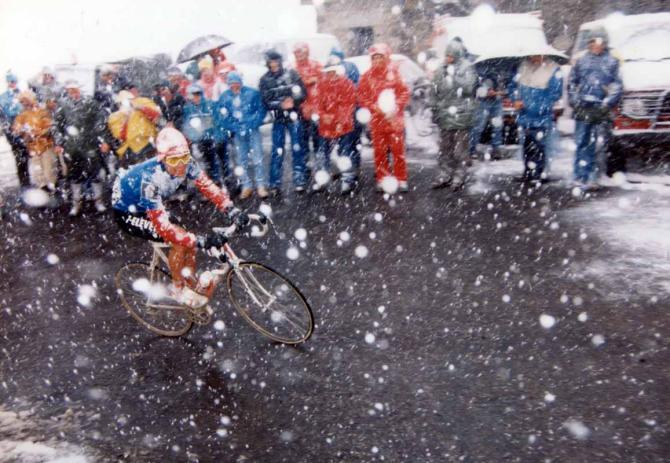

The 2019 Giro d'Italia begins on Saturday, May 11, and this Essential Guide kicks off Cyclingnews' 10-day countdown of special features in preparation for the first Grand Tour of the season. Between now and the opening time trial in Bologna, we'll have special daily content, including major rider interviews, vital race information and retro features that capture the unique feeling and emotions of the Corsa Rosa.
Sam Bennett overcomes Giro snub with multiple wins in Turkey
Majka back to his best as Giro d'Italia nears
Pozzovivo confident he'll start Giro d'Italia after Fleche Wallonne crash
Giro d'Italia: Ewan and Campenaerts named in Lotto Soudal's squad
Valverde's Giro d'Italia participation in doubt after training crash
After last year's Grande Partenza in Israel and Chris Froome's eventual victory in Rome, this year's Giro d'Italia will be a far more Italian affair and probably a far closer race, with pre-race predictions on who will win the maglia rosa impossible to make even just 10 days from the start.
This 102nd edition of the Corsa Rosa rolls out of Bologna on Saturday, May 11, with an evening time trial up to the Basilica della Madonna di San Luca and ends three weeks later on Sunday, June 2, with a 17km time trial into the Roman amphitheatre in the centre of Verona. In between are 21 stages that head south via Tuscany, Lazio, Abruzzo and Puglia and then north back via San Marino for a key time trial and then to Piemonte, climbing first the Alps to the east and then the Passo Gavia and the Passo del Mortirolo before a terrible final week in the Dolomites.
The 3,578km of racing include 59.8km of individual time trialling, which is balanced with 40 categorised climbs and six mountain-top finishes.
The route is a race of two halves, with the sprinters and adventurers likely to dominate the racing and ownership of the pink jersey until the San Marino time trial on stage 9. We can expect Elia Viviani (Deceuninck-QuickStep), Arnaud Démare (Groupama-FDJ), Caleb Ewan (Lotto Soudal) and others to clash in the sprint finishes before perhaps heading home mid-race, while the smaller Italian teams and other wildcards look for the moment of glory that justifies their existence.
The stage 9 hilly individual 34.8km test up to the San Marino micro-state will shake out this year's overall contenders and show just how much time the stronger climbers will have to pull back in the mountains.
Will strong time triallists such as Tom Dumoulin (Team Sunweb) and Primoz Roglic (Jumbo-Visma) then go on to control their rivals before sealing victory in Verona? Or will the natural aggression and climbing prowess of Vincenzo Nibali (Bahrain-Merida), Simon Yates (Mitchelton-Scott) and Egan Bernal (Team Ineos) prove to be decisive in the final week of fatigue? We will only find out day after day as the kilometres pass under wheel and tension mounts with each turn of the pedals.
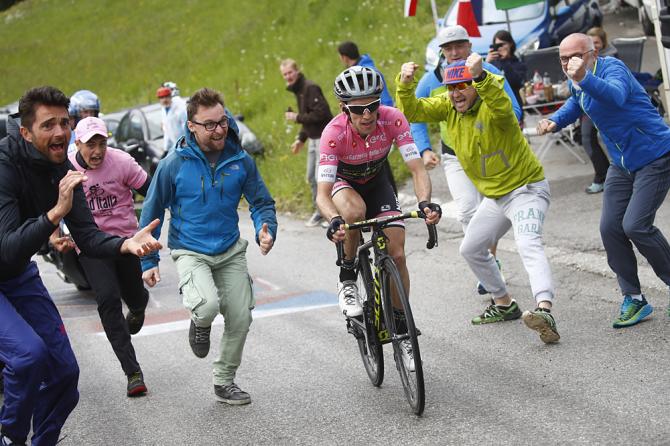
Who will follow Chris Froome in the Giro roll of honour?
Froome is eyeing a fifth Tour de France this year and so will not be back in search of a second Giro d'Italia victory. However, Nibali is looking for his third victory, while Dumoulin has prioritised a second win ahead of a shot at the Tour de France. Everyone else is looking for their first maglia rosa and the twisting Infinito trophy.
Nibali looked on form at the recent Tour of the Alps and 'The Shark of Messina' seems hungry, despite being 34 and the talk about him moving to Trek-Segafredo for 2020. Dumoulin has yet to win in 2019 but is at the peak of his career. Perhaps the Dutchman's only weakness could be the lack of a strong team in the mountains. Roglic has impressed so far this season, winning the UAE Tour and Tirreno-Adriatico, but can he handle the pressure for three weeks of unpredictable racing? The same question is legitimate for Simon Yates. The British climber looked in charge of the maglia rosa last year, only to go too deep in the time trial and never recover.
Miguel Angel Lopez has been overlooked by many, but he won at home at the Tour Colombia 2.1 race and again at the Volta a Catalunya. If he has the same form as his hugely successful Astana teammates, he could be a real threat. Compatriot Egan Bernal is equally as dangerous and can count on a young but talented Team Ineos squad that includes Tao Geoghegan Hart and Pavel Sivakov. Bernal is strong in time trials and in the mountains, and the team’s youthful talent will more than make up for a lack of experience.
World champion Alejandro Valverde was hoping the Giro d'Italia would be part of his year of celebration, but it could become his curse, and Mikel Landa will perhaps fill his shoes at Movistar and challenge for the podium.
Twenty-two teams of eight riders will start the race, creating a peloton of 176 riders. Other names to watch for and enjoy include David Formolo (Bora-Hansgrohe), Ilnur Zakarin (Katusha-Alpecin), Ben O'Connor (Dimension Data), Esteban Chaves (Mitchelton-Scott) and Bauke Mollema (Trek-Segafredo), plus sprinters such as Giacomo Nizzolo (Dimension Data), Pascal Ackermann (Bora-Hansgrohe), and rouleurs and puncheurs like Tony Gallopin (AG2R La Mondiale), Jay McCarthy (Bora-Hansgrohe), Davide Cimolai (Israel Cycling Academy), Michael Valgren (Dimension Data) and Diego Ulissi (UAE Team Emirates).
Bologna to Verona in 21 stages but more than a bike race
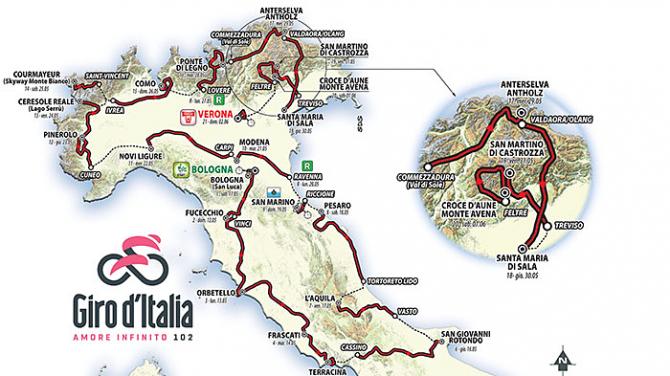
The Giro d'Italia visits as many regions as possible in 21 stages, celebrating the past, the present and the future of the country. The Giro d'Italia is about far more than a bike race and each new edition of the Corsa Rosa recalls the history of the race and celebrates the varied parts of Italy it visits.
A million people are said to stop to watch the race pass by in the central Apennine hills, along the Mediterranean coast, the barren south, the industrial north and, of course, in the high mountains, where the true tifosi wave frantically and emotionally, sportingly cheering for every rider.
The 2019 Giro d'Italia will recall the former greats of the race, with stage 2 to Fucecchio remembering Tuscany's greatest Gino Bartali. The 100 years since the birth of Fausto Coppi will be remembered with the Cuneo-Pinerolo stage 12. The 2,618m-high Passo Gavia awards the Cima Coppi prize on stage 16, with the Mortirolo during the same 226km stage awarding the Montagna Pantani prize.
The Grande Partenza in Bologna will give a true Italian feel to the start of the race. The regional capital of Emilia Romagna is known as 'La Grassa' for its food culture, and the riders will no doubt be warned to stay away from the local delicacies of mortadella, prosciutto, stuffed tortellini pasta, squacquerone cheese and red Lambrusco wine. Bologna has been the site of the Grande Partenza on one previous occasion, in 1994, when Endrio Leoni won the morning road stage before the late Armand De Las Cuevas took over the maglia rosa in the afternoon time trial.
This year's opening 8km time trial finishes at 8:00pm. local time, just before Italians enjoy an aperitivo drink or sit down for dinner. The climb up to the Santuario di San Luca ends with a final two kilometres at 9.7 per cent, and so will test the overall contenders, and any time losses will spark debate and doubts over the overall contenders.
Stage 2 climbs over the Apennines into Tuscany and Fucecchio, with stage 3 starting in Vinci to celebrate the 500th anniversary of the death of Leonardo da Vinci. The sprinters get their chances in Orbitello, Frascati and Terracina on the long road south, with three subsequent stages to San Giovanni Rotondo, L'Aquila – 10 years after a terrible earthquake hit the Abruzzo city – and Pesaro on the Adriatic coast more suited to long breakaways or late attacks.
The 34.8km time trial up to San Marino marks the start of the real battle for overall victory. The road is flat and fast until Faetano for the first 22km, but then climbs up to San Marino on a narrow, steep and twisting back road. It will be interesting to see if riders opt to change bikes mid-stage, and whether anybody goes too deep and cracks close to the finish. Every second lost will be a weight to carry into the mountains.
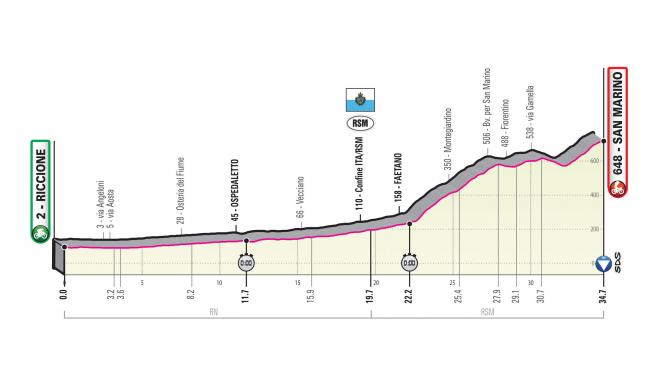
East into the mountains
The riders will enjoy the first rest day on Monday, May 20, with two pan-flat stages to Modena and across to Piemonte in Novi Ligure – the birthplace of Italian legends Costante Girardengo and Fausto Coppi. They give a couple of final chances for the sprinters before climbing high into the Italian Alps.
Disappointingly, the 2019 Giro d'Italia does not cover the high Alpine climbs that Coppi did in 1949 during his 192km attack, opting for easier climbs on the road to Pinerolo, with the Montoso climb the only difficulty of the 158km stage.
The real mountains begin on stage 13 with the 2,247-metre-high finish on the stunning Colle del Nivolet climb to Lake Serrù, close to the spectacular Gran Paradiso. The Colle del Nivolet has rarely been used in races but is famous for the final scenes of the movie The Italian Job, where Michael Caine's stash of gold was left hanging over a precipice.
Stage 14 from Saint Vincent to Courmayeur is short at 131km, but intense with four steep climbs and a final kick to the foot of the Monte Bianco Skyway. It could be one of the most intense stages of the 2019 Giro d'Italia, with early gradients in the double digits on the Colle San Carlo likely to inspire attacks.
What is left of the peloton will enjoy the second rest day near Bergamo on Monday, May 27, before climbing high into the Eastern Alps via the legendary Passo di Gavia, where Andy Hampsten gained time on his rivals in the snow to win the 1988 Giro d’Italia, and the Mortirolo. Race organiser RCS Sport has rightly given the stage five stars. It is the hardest of the whole race.

The final stages stay in the mountains of northern Italy, with stage 18 down to Santa Maria di Sala near Venice offering the only respite from the climbing.
Stage 17 passes through the Val di Sole apple orchards and up to Anterselva near the Austrian border, with stage 19 heading back into the mountains from Pinarello and Segafredo's home in Treviso for a fast climb to San Martina di Castrozza, south of the spectacular Dolomites.
The final mountains come on stage 20, overlooking the final time trial. The 194km stage from Feltre to the Passo Croce d'Aune covers 194km and three major climbs in a long loop. It starts with the little-known Cima Campo, which leads to the terrible 18.9km Passo Manghen. The Fiemme valley leads to the Passo Rolle and the 13.5km climb up to above the Croce d'Aune. A statue at the summit marks the point where Tullio Campagnolo struggled to change a wheel during a race in 1927 and was inspired to create the quick-release lever. The stage descends and then kicks up to Monte Avena, with six kilometres of twisting climbing at 7.3 per cent to the finish.
Whoever wears the maglia rosa on Saturday afternoon will then have to defend it on the 17km final-stage time trial around Verona. The stage is far from flat, with the Toricelle climb limiting the time gains of the better time triallists. The final winner will be crowned inside the Roman amphitheatre, just like in 1981, when Giovanni Battaglin defended the pink jersey, and in 1984, when Francesco Moser used disc wheels and his Hour Record preparation to snatch victory from Laurent Fignon, and again in 2010, when Ivan Basso won his second Giro d'Italia.
The whole Giro d'Italia route, and especially those final 17km, should provide a dramatic finish to the 2019 Giro d'Italia.
Giro d'Italia 2019 stages
Stars (out of five) denote stage difficulty according to race organiser
Stage 1 - May 11: Bologna (ITT), 8 km ***
Stage 2 - May 12: Bologna - Fucecchio, 205 km ***
Stage 3 - May 13: Vinci - Orbetello, 220 km **
Stage 4 - May 14: Orbetello - Frascati, 235 km **
Stage 5 - May 15: Frascati - Terracina, 140 km *
Stage 6 - May 16: Cassino - San Giovanni Rotondo
238 km ***
Stage 7 - May 17: Vasto - l'Aquila, 185 km **
Stage 8 - May 18: Tortoreto Lido - Pesaro, 239 km ***
Stage 9 - May 19: Riccione - San Marino (ITT), 34.8 km ****
Rest Day 1 - May 20
Stage 10 - May 21: Ravenna - Modena, 145 km *
Stage 11 - May 22: Carpi - Novi Ligure, 221 km *
Stage 12 - May 23: Cuneo - Pinerolo, 156 km ***
Stage 13 - May 24: Pinerolo - Ceresole Reale (Lago Serrù), 196 km *****
Stage 14 - May 25: Saint-Vincent - Courmayeur (Skyway Monte Bianco), 131 km *****
Stage 15 - May 26: Ivrea - Como, 232 km ****
Rest Day 2 - May 27
Stage 16 - May 28: Lovere - Ponte di Legno, 226 km *****
Stage 17 - May 29: Commezzadura (Val Di Sole) - Anterselva/Antholz, 181 km ***
Stage 18 - May 30: Valdaora/Olang - Santa Maria di Sala, 222 km *
Stage 19 - May 31: Treviso - San Martino di Castrozza, 151 km ***
Stage 20 - June 01: Feltre - Croce d'Aune-Monte Avena, 194 km *****
Stage 21 - June 02: Verona - Verona (ITT), 17 km ***
Get The Leadout Newsletter
The latest race content, interviews, features, reviews and expert buying guides, direct to your inbox!

Stephen is one of the most experienced member of the Cyclingnews team, having reported on professional cycling since 1994. He has been Head of News at Cyclingnews since 2022, before which he held the position of European editor since 2012 and previously worked for Reuters, Shift Active Media, and CyclingWeekly, among other publications.
Latest on Cyclingnews
-
Best bike brands: Bicycle companies we trust
The bike brands we rate highly at Cyclingnews and a guide to available marques -
Paris-Roubaix medical updates – From fractures for Ballerini and a bloodied face for Küng to lucky escapes for Theuns and Ferguson
The accumulating injury reports from a brutal weekend of racing at the Hell of the North -
Gallery: Pain faces of Paris-Roubaix from inside the historic velodrome
All the best pictures from the finish of the men's and women's races from the 2025 Paris-Roubaix -
Spectator who threw bidon at Mathieu van der Poel during Paris-Roubaix hands himself in to Belgian police
Eventual race winner was struck in the face by a water bottle 33km from the finish amid solo effort
